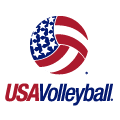NCAA Basketball Recruiting Guidelines: Get College Coaches to Notice You

What skills are needed to play basketball in college? And what do college coaches look for in recruits? Whether an athlete is a perimeter player or post player, this section lays out the different requirements needed to compete at the college level, from NCAA Division 1 to JUCO programs. When student-athletes know where they fit in best, they can create a realistic list of target colleges and improve their chances of connecting with college coaches.
Quick Links
What do coaches look for in college basketball recruits?
College coaches look at a variety of factors when determining an athlete’s ability. Here are the most important ones:
Technical ability: That being said, at the collegiate level, every athlete will be fast, athletic and strong, so coaches also thoroughly evaluate technical skills. For example, can the recruit protect the ball, or shoot with the right footwork and release point? Bottom line: coaches don’t want to bring on student-athletes who need to be taught the fundamentals.
Basketball IQ: More importantly, coaches will determine a recruit’s “basketball IQ” and this is where position-specific skills come into play. Can perimeter players successfully drive the game and control the pace? Do post players read the right defensive rotations? Basketball IQ also includes situational awareness of the game. For example, if the clock is winding down and the game is tied, do athletes know to hold onto the ball until the last shot, instead of forcing a shot early? It also means being aware of how many time outs and fouls both teams have throughout the game. Players who are technically sound, can read the game and execute on the fundamentals will stand out.
Academics. Lastly, there are aspects outside of athletics that can truly set recruits apart. Academics, especially at the Division 3 level, are extremely important to college coaches. High grades and test scores speak to an athlete’s discipline, leadership ability and even time management skills.
Of course, what coaches look for also depends on their program’s specific needs. Some schools might invest more in developing a tall, athletic post player, while others highly value a smaller player who has raw talent, polished skills and strong instincts. In many cases, college coaches will turn to JUCO teams to find stronger and more developed talent compared to high school student-athletes.
Establishing relationships with college coaches is the best way to fully understand their recruiting needs. But another quick way is to visit a team’s roster. Look at which athletes are graduating versus how many underclassmen are in certain positions and compare athletic history to see which positions coaches are recruiting and what key stats they look for.
What basketball skills are needed to play at the college level?
When compiling their lists of top recruits, college coaches evaluate three athletic factors: physical ability, fundamentals and basketball IQ. They seek out players who are conditioned, technically sound and have a thorough understanding of the game and strong instincts. They also want to coach athletes who have the potential to improve. That’s why playing nationally and against other high-level recruits is a popular way to gain exposure. Here is a quick overview of the types of players each division recruits:
Division 1 basketball skills: These recruits are ranked nationally and are included in top lists, such as ESPN Top 150, Rivals and Scout. They have elite ball handling and defensive skills and are the best players on their high school and club teams. Simply put—they are the top recruits across the country. Typically recruited through their AAU (Amateur Athletic Union) club team, these athletes receive interest and verbal offers from college coaches early in the process during the summer after sophomore year. They’re awarded top accolades, including All-State honors, and start on varsity all four years.
Division 2 basketball skills: These players have mastered the fundamentals and are considered one of the top players on their high school and club team. They have control on the court and will continue to develop under a collegiate training program. They’ve received awards like All-Region, All-District and All-Conference. Top NCAA Division 2 programs make verbal offers to these athletes at the beginning of their junior year.
Division 3 basketball skills: These players have some club and varsity experience, earning them accolades, such as All-Area and All-Conference. They have the fundamentals nailed down and may need to continue to work on other parts of their game, whether it’s rebounding, defense, etc. A bulk of these recruits will receive offers after the summer of their junior year and into senior year.
NAIA basketball skills: These basketball recruits will look similar to some Division 2 prospects. They have varsity experience and played with a high-level club for two to three years. They’ve earned awards, such as All-Area and All-Conference. In a collegiate training program, they will continue to get stronger and improve their technical ability. These recruits can receive offers during their junior year and into their senior year as well.
JUCO basketball skills: JUCO basketball prospects aim to fine tune their skills before transferring to a four-year institution. They are utility players and benefit from competing in a post high school setting. This level is a great opportunity for athletes to focus on core fundamentals, while working on getting stronger and faster, before going on to play at the highest level.
Men’s basketball point guard recruiting guidelines
Top D1 / Top JC
- Club Experience: Plays at the highest level in AAU, qualifying for national tournaments and elite events across the country. Ranks nationally on lists such as Rivals, Scout and ESPN Top 150. High profile player who is usually recruited through AAU as an underclassman.
- High School Experience: Varsity starter all four years of high school. Earned several top accolades, such as All-State, All-Region and All-Area honors. Best player on the team.
Low D1 / Top D2 / Top NAIA
- Club Experience: Three to four years of AAU experience, playing on high level teams that compete nationally. Gets college coach exposure at club summer tournaments.
- High School Experience: Three to four years as a varsity starter, earning awards such as All-Conference and All-Region. One of the top athletes on the team.
Low D3 / Low NAIA
- Club Experience: Some AAU experience playing locally, although it is not necessary.
- High School Experience: Varsity starter as an upperclassman, possibly earning some accolades such as All-Area or All-Conference.
Low D3 / Low JC
- Club Experience: Some AAU experience playing locally, although it is not necessary.
- High School Experience: One to two years of varsity experience.
Men’s basketball power forward recruiting guidelines
Top D1 / Top JC
- Club Experience: Plays at the highest level in AAU, qualifying for national tournaments and elite events across the country. Ranks nationally on lists such as Rivals, Scout and ESPN Top 150. High profile player who is usually recruited through AAU as an underclassman.
- High School Experience: Varsity starter all four years of high school. Earned several top accolades, such as All-State, All-Region and All-Area honors. Best player on the team.
Low D1 / Top D2 / Top NAIA
- Club Experience: Three to four years of AAU experience, playing on high level teams that compete nationally. Gets college coach exposure at club summer tournaments.
- High School Experience: Three to four years as a varsity starter, earning awards such as All-Conference and All-Region. One of the top athletes on the team.
Low D3 / Low NAIA
- Club Experience: Some AAU experience playing locally, although it is not necessary.
- High School Experience: Varsity starter as an upperclassman, possibly earning some accolades, such as All-Area or All-Conference.
Low D3 / Low JC
- Club Experience: Some AAU experience playing locally, although it is not necessary.
- High School Experience: One to two years of varsity experience.
Men’s basketball center recruiting guidelines
Top D1 / Top JC
- Club Experience: Plays at the highest level in AAU, qualifying for national tournaments and elite events across the country. Ranks nationally on lists such as Rivals, Scout and ESPN Top 150. High profile player who is usually recruited through AAU as an underclassman.
- High School Experience: Varsity starter all four years of high school. Earned several top accolades, such as All-State, All-Region, and All-Area honors. Best player on the team.
Low D1 / Top D2 / Top NAIA
- Club Experience: Three to four years of AAU experience, playing on high level teams that compete nationally. Gets college coach exposure at club summer tournaments.
- High School Experience: Three to four years as a varsity starter, earning awards such as All-Conference and All-Region. One of the top athletes on the team.
Low D3 / Low NAIA
- Club Experience: Some AAU experience playing locally, although it is not necessary.
- High School Experience: Varsity starter as an upperclassman, possibly earning some accolades such as All-Area or All-Conference.
Low D3 / Low JC
- Club Experience: Some AAU experience playing locally, although it is not necessary.
- High School Experience: One to two years of varsity experience.
Men’s basketball shooting guard recruiting guidelines
Top D1 / Top JC
- Club Experience: Plays at the highest level in AAU, qualifying for national tournaments and elite events across the country. Ranks nationally on lists such as Rivals, Scout and ESPN Top 150. High profile player who is usually recruited through AAU as an underclassman.
- High School Experience: Varsity starter all four years of high school. Earned several top accolades, such as All-State, All-Region and All-Area honors. Best player on the team.
Low D1 / Top D2 / Top NAIA
- Club Experience: Three to four years of AAU experience, playing on high level teams that compete nationally. Gets college coach exposure at club summer tournaments.
- High School Experience: Three to four years as a varsity starter, earning awards such as All-Conference and All-Region. One of the top athletes on the team.
Low D3 / Low NAIA
- Club Experience: Some AAU experience playing locally, although it is not necessary.
- High School Experience: Varsity starter as an upperclassman, possibly earning some accolades such as All-Area or All-Conference.
Low D3 / Low JC
- Club Experience: Some AAU experience playing locally, although it is not necessary.
- High School Experience: One to two years of varsity experience.
Men’s basketball small forward recruiting guidelines
Top D1 / Top JC
- Club Experience: Plays at the highest level in AAU, qualifying for national tournaments and elite events across the country. Ranks nationally on lists such as Rivals, Scout and ESPN Top 150. High profile player who is usually recruited through AAU as an underclassman.
- High School Experience: Varsity starter all four years of high school. Earned several top accolades, such as All-State, All-Region and All-Area honors. Best player on the team.
Low D1 / Top D2 / Top NAIA
- Club Experience: Three to four years of AAU experience, playing on high level teams that compete nationally. Gets college coach exposure at club summer tournaments.
- High School Experience: Three to four years as a varsity starter, earning awards such as All-Conference and All-Region. One of the top athletes on the team.
Low D3 / Low NAIA
- Club Experience: Some AAU experience playing locally, although it is not necessary.
- High School Experience: Varsity starter as an upperclassman, possibly earning some accolades such as All-Area or All-Conference.
Low D3 / Low JC
- Club Experience: Some AAU experience playing locally, although it is not necessary.
- High School Experience: One to two years of varsity experience.
How to get ranked in basketball
Star ratings are a quick and easy way to convey a recruit’s level of talent to college coaches. In men’s basketball, 5-star athletes are the best recruits in the country and have outstanding athleticism far beyond their peers. Prospects who are considered the best player on their club or high school team are typically considered 4-star athletes. Student-athletes who show dominance on the court but have a few areas to improve on are usually labeled as 3-star athletes. Lastly, 1- and 2-star recruits have potential to compete at the college level and after some training and development, could become reliable starters.
It’s important for recruits to gauge their level of talent so they know which programs they qualify for. There are a couple of ways to receive a star rating. First, they can ask their high school or club coach to help assess their skill set and research college team rosters to see where their talent aligns. Another way is to have a third-party, like NCSA, use their expertise and knowledge of the college landscape to personally evaluate the recruit.
















